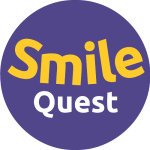 A Dental Health Program through Tobacco/Vaping Prevention
A Dental Health Program through Tobacco/Vaping Prevention
and Sugar Reduction
Dental caries, or tooth decay, is a widespread chronic disease affecting many in the U.S., including youth and adults. Adolescence is a critical time to adopt healthy habits that can be sustained into adulthood, but there is a shortage of effective dental health programs. Research highlights that key oral health strategies during adolescence include avoiding tobacco and vaping and reducing sugar intake. We used an iterative development process to create an online dental program for adolescents, focusing on two behavior domains: Tobacco/vaping prevention and reducing consumption of sugar-sweetened beverages.
This digital program, designed for 7th and 8th-grade students, uses theory-driven mechanisms to promote oral health through engaging videos and interactive games.
The digital program is available in both English and Spanish.
To schedule a demonstration of the program, learn more,
or sign up to participate please contact:
Erika Westling, PhD
Oregon Research Institute
541-484-2123
Smile Quest Program Overview
MORE INFORMATION ABOUT SMILE QUEST
“I liked how it was very informative, but also a fun experience.”
“I felt like it explained how things like vaping, smoking, and sugary drinks affect your mouth very well.”
– Students doing SmileQuest during program development
What is Smile Quest?
- An online program for 7th and 8th grade students, designed to prevent vaping, tobacco/nicotine use, and to reduce consumption of sugary beverages. It is available in English or Spanish.
- Students proceed through the program, doing various activities and games to learn about how smoking, vaping, and sugary drinks can impact their dental health.
- Our studies in Oregon schools found that almost 30% of kids have tried vaping by the end of 8th grade. Teaching kids about tobacco/nicotine and vaping before most have initiated use is the ideal time to prevent future use.
- About 63% of teens drink at least one sugary beverage a day (such as a soda, an energy drink, or a sweetened coffee drink). Most do not know how sugary drinks impact their dental health.
The SmileQuest program is based on theoretical models of behavior change for adolescents.
- SmileQuest currently consists of three ~20-minute lessons delivered over 3 weeks.
- The program meets Oregon curriculum standards for health.
Requires little teacher time.
- Students work on it individually, allowing for teacher flexibility.
What is the Evaluation?
- We will evaluate the program in TWO classrooms of 7th and/or 8th grade students attending 10 (or more) schools like yours, in the 2025/2026 school year.
- Half of the schools that participate will be randomly assigned to receive the program (Intervention) or to be in the Control group.
- Students will complete an online survey three times, at baseline, six weeks later, and six months after baseline. Answers given in questionnaires will be confidential.
What Will Schools Receive for Participating?
- $2,000 for each school.
- A report of program use and effectiveness upon project completion.
- Intervention schools will receive the SmileQuest program during the evaluation and all schools will have access to the program for three years after completion of the evaluation.
What are we asking Schools to do?
- Intervention Schools (schools using the program)
- Student Time: About one hour for program completion, and about an hour for surveys.
- Staff Time: Less than an hour to set up TWO classrooms of students in the program, 5 minutes to introduce the program to students, and about an hour to monitor student progress through the program across three weeks. Teachers will also complete a 15-minute survey about the program. Teachers will receive $100 for their time.
- Active Control Schools (schools that use their existing health curriculum plus watch videos)
-
Student Time: About an hour for three surveys across 6 months, and an hour to watch videos to promote dental health across three weeks.
-
Staff Time: About one hour to facilitate online student surveys and an hour across three weeks to show the class dental health promotion videos.
-
All Schools
- Provide the number of participating students and their sex, race and ethnicity.
What Type of Consent Process Will Be Used?
- Passive consents in English and Spanish will be arranged for survey collection. The curriculum can be delivered without obtaining consent, as it is part of dental health promotion and substance use prevention.
- The evaluation project will pay for all copying and mailing costs.
To Schedule a Demonstration of the Program, Learn More, or Sign Up to Participate, Contact:
Erika Westling, PhD
Oregon Research Institute
541-484-2123; ErikaW@ori.org
Lead Researchers:
Erika Westling, Ph.D., Principal Investigator
Ed Feil, Ph.D., Principal Investigator
Irin Pimentel-Mannan, Ph.D., Postdoctoral scholar and Project Coordinator
Funding information:
The research is funded by the National Institutes for Health (NIH) / National Institute of Dental and Craniofacial Research (1R01DA059401-01) and is being conducted at the Oregon Research Institute (1UG3DE033198-01)
